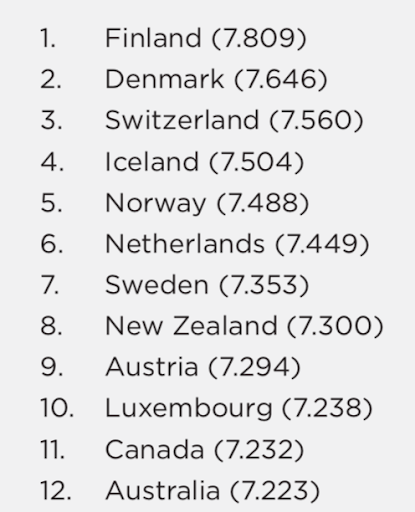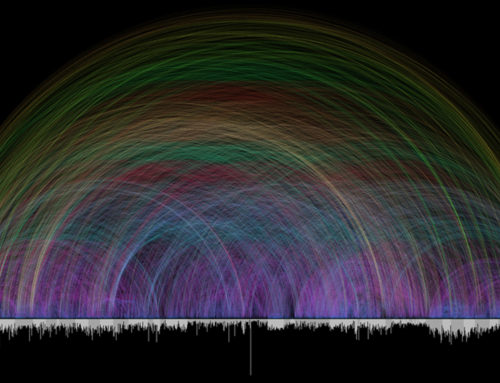The Parasitic Mind: How Infectious Ideas Are Killing Common Sense by Gad Saad (Regnery Publishing, 2020)
Gad Saad immigrated to Canada from the Middle East when he was a child. He is now a professor of marketing at the John Molson School of Business at Concordia University.
Before I buy a new book, I often flip through the index. For The Parasitic Mind, I was pleased to see the names of great thinkers I admire, including Richard Dawkins and Daniel Kahneman. Given Saad’s background in evolutionary biology and its title, I had high hopes it would include some insights on memetics, similar to those provided by Dawkins and by Oxford University’s Computational Propaganda Project.
However, at the same time, the cover featured a blurb from logorrheic Jordan Peterson. So I dived into it not really knowing what to expect.
Saad insists that he should not be misinterpreted as a sexist, racist or bigot, because:
‘I hold a winning hand in Victimology Poker. I am a Lebanese Jew and hence a ‘person of color’ (to use the obnoxious parlance of the social justice warriors). I am a war refugee who escaped religious persecution, and I am a ‘person of size’ (I am overweight). It is difficult to beat me in the Oppression Olympics, and accordingly I use my royal flush of victimhood against those who typically seek to accuse me of faux-racism, faux-sexism and faux-bigotry…
Unlike other pandemics where biological pathogens are to blame, the current culprit is composed of a collection of bad ideas, spawned on university campuses, that chip away at our edifices of reason, freedom, and individual dignity…
I posit that freedom of speech, the scientific method, intellectual diversity and a meritocratic ethos rooted in individual dignity rather than adherence to the ideology of Diversity, Inclusion and Equity (DIE) are non-negotiable elements of a truly enlightened society. A fair society ensures that its members have equality of opportunities and not equality of outcomes…
Student-activist social justice warriors (SJWs) might be outnumbered on campuses, yet they rule via the tyranny of the minority, backed by ‘progressive’ professors and campus administrators…
I address several anti-science, anti-reason, and illiberal idea pathogens including postmodernism, radical feminism, and transgender activism, the latter two of which are rooted in a deeply hysterical form of biophobia (fear of biology)…
There is a growing trend on university campuses to identify white supremacy everywhere. If there aren’t enough rabid racists around, just make them up to maintain the homeostasis of victimology…
What are the essential features that a society must possess in order to be truly liberal and modern?… I posit that the guaranteed right to debate any idea (freedom of speech and thought) coupled with a commitment to reason and science to test competing ideas (the scientific method) are what have made Western Civilization great…’
It is hard to disagree with Saad’s definition of a liberal, modern society. Nonetheless the idea of ‘Western Civilization’ is very broad. If we use freedom of speech and a commitment to reason and the scientific method as criteria, then it clearly started in ancient Greece.
However, according to Freedom House, today the most free countries in the world are the following:

Saad continues:
‘When Donald Trump won the United States presidential election in 2016, I began noticing a hysterical form of Collective Munchausen wherein faux-victims were feverishly vying for top spot on the prospective victimhood hierarchy…
The negative hysteria surrounding Donald Trump is rooted in peripheral processing (‘his mannerisms disgust me’). Trump’s detractors should perhaps be spending more effort engaging their central route of persuasion by evaluating his policy positions in a dispassionate and detached manner… Many hysterical anti-Trump voters begin with a visceral emotional hatred of the man and then process subsequent information in a manner that supports their a priori affective position…’
It is fair to say that it is not simply on the basis of ‘his mannerisms’ that Trump is one of the most hated presidents in US history. To give only two examples, he has had a disastrous record on environmental issues, and although a self-professed billionaire, paid only $750 in federal income tax the year he was elected – far less than the average American pays.
Saad continues:
‘In his 1976 classic The Selfish Gene, evolutionary biologist Richard Dawkins famously introduced the concept of the meme to our public consciousness. Memes are packets of information that spread from one brain to another. In reading this book, your brain is infected by my memes. If you then discuss my ideas within your social circle, my memes are further propagated. Not all memes are created equal though, be it in terms of their valence (positive, neutral, or negative) or their virulence (how quickly they spread)…
In his 2011 bestselling book Thinking Fast and Slow, Nobel laureate Daniel Kahneman argued that humans are endowed with two systems of thinking: System 1 composed of fast, intuitive, automatic, unconscious, emotional, and instinctive processes; and System 2 made up of slow, deliberate, analytical, logical, and conscious processes… The problem arises when domains that should be reserved for the intellect are hijacked by feelings. This is precisely what plagues our universities: what were once centers of intellectual development have become retreats for the emotionally fragile…’
In reality, Kahneman explains that it is not a matter of the intellect being ‘hijacked’ by feelings. Rather:
‘System 1 operates automatically and quickly, with little or no effort and no sense of voluntary control. System 2 allocates attention in the effortful mental activities that demand it. The operations of System 2 are often associated with the subjective experience of agency, choice, and concentration.
When we think of ourselves, we identify with System 2, the conscious, reasoning self that has beliefs, makes choices, and decides what to think about and what to do. Although System 2 believes itself to be where the action is, System 1 effortlessly originates impressions and feelings that are the main sources of the beliefs and deliberate choices of System 2.
In the unlikely event of this book being made into a film, System 2 would be a supporting character who believes herself to be the hero. The defining feature of System 2, in this story, is that its operations are effortful, and one of its main characteristics is laziness, a reluctance to invest more effort than is strictly necessary. As a consequence, the thoughts and actions that System 2 believes it has chosen are often guided by the figure at the center of the story, System 1.’
Saad writes:
‘Another manifestation of whataboutism occurs when people accuse me of not focusing on their preferred issues. ‘But what about Israel, Professor Saad? Why don’t you criticize their policies? What about Trump’s position on climate change, Professor Saad? Are you a climate change denier? If you care so much about the state of our educational system, why don’t you attack Trump’s secretary of education, Betsy DeVos?’ This is as logical as questioning why a dermatologist is spending her time curing melanoma…’
Here Saad is being disingenuous. A dermatologist spends her time curing melanoma, because that is where her professional expertise lies. Saad’s expertise lies in evolutionary psychology, not in postmodernism, or ‘radical’ feminism, or the other straw men he attacks in this book. And he is not criticizing them on the basis of science, or reason, or even on the basis of ‘common sense’, but rather because he has an emotional aversion to them. Of course he has every right to his personal likes and dislikes, but this perspective should be honestly presented as the polemic which it is, rather than as anything having to do with science or truth.
Saad continues:
‘People expect that I should dispense my ire and cast my critical eye on the right in equal measure as I do the left… Postmodernism, radical feminism, cultural relativism, identity politics, and the rest of the academic nonsense were not developed and promulgated by right-wing zealots… My goal is to defend the truth, and today it is the left’s pathogenic ideas that are leading us to an abyss of infinite, irrational darkness…’
Ronald Inglehart, founder of the World Values Survey and author of Cultural Evolution, has demonstrated that using ‘left’ and ‘right’ in this manner is an obsolete way of characterizing major cultural divisions. A more accurate and empirical way to describe these cleavages is between ‘materialist’ value systems (at the base of Maslow’s hierarchy of needs), and ‘postmaterialist’ value systems at the top of this hierarchy. Inglehart writes:
‘In the decades following World War II, something unprecedented occurred in economically advanced countries: much of the postwar generation grew up taking survival for granted. High levels of economic and physical security led to pervasive intergenerational cultural changes that reshaped the values and worldviews of these publics, bringing a shift from Materialist to Postmaterialist values.’
‘This broad cultural shift moves from giving top priority to economic and physical safety and conformity to group norms, toward increasing emphasis on individual freedom to choose how to live one’s life. Self-expression values emphasize gender equality, tolerance of gays, lesbians, foreigners and other outgroups, freedom of expression and participation in decision-making in economic and political life.
This cultural shift brought massive social and political changes, from stronger environmental protection policies and anti-war movements, to higher levels of gender equality in government, business and academic life, and the spread of democracy.
High levels of existential security are also conducive to secularization – a systematic erosion of religious practices, values and beliefs. Secularization has spread among the publics of virtually all advanced industrial societies during the past fifty years.
Consequently, although within most countries religious people are happier than less religious people, the people of modernized but secular countries are happier than the people of less-modernized but highly religious countries.’
Indeed, according to the 2020 World Happiness Report, the happiest countries in the world are as follows:

And according to the 2020 Social Progress Index, the countries with the highest social progress are 1. Norway 2. Denmark 3. Finland 4. New Zealand 5. Sweden 6. Switzerland 7. Canada 8. Australia 9. Iceland 10. Netherlands
Inglehart continues:
‘The decline of xenophobia, racism, sexism and homophobia are part of a long-term trend away from inward-looking tribal moral norms, under which large parts of humanity were excluded from moral citizenship, and genocide and slavery were standard practice. The distinction is fading between an in-group, who merits just treatment, and outgroups, to whom moral norms do not apply. Globalization and the emergence of knowledge societies is linked with a trend toward universal moral norms in which formerly excluded groups, such as foreigners, women and gays, are believed to have human rights…
Societies dominated by traditional pro-fertility norms allow sex only within marriage, imposing severe sexual repression on unmarried young men.
Throughout history, societies have encouraged young men to demonstrate their fitness through heroic acts of violence on behalf of their tribe or country, motivating them to risk their lives in war. The ideal leader was the Alpha Male who fought fearlessly and demanded unquestioning obedience in combat. Azar Gat has argued that war sometimes provided almost the only opportunity for young men to have sex, with rape being a fringe benefit of war…
The negative relationship between pro-choice values and tolerance of violence and war reflects an evolutionary principle: sexual freedom and physical violence are at opposite poles of the existential security continuum.’
To put it simply, when survival is not guaranteed, you make war; when you can take survival for granted, you make love.
More broadly, when societies feel confident and secure, they adopt what George Lakoff calls postmaterialist ‘Nurturing Parent’ values, and these are dominant in the countries the World Values Survey identifies as the most progressive and postmaterialist: 1. Sweden 2. Denmark 3. Norway 4. Iceland 5. Australia 6. Netherlands 7. Andorra 8. Finland 9. Canada 10. Switzerland.
But when people feel fearful and insecure, there is an authoritarian reflex to materialist ‘Strict Father’ values.
Saad writes:
‘The greatness of the West stems in part from its protection of fundamental freedoms and its commitment to reason and the scientific method. Over the past few decades though, nefarious forces have slowly eroded the West’s commitment to reason, science, and the values of the Enlightenment. Such forces include political correctness, postmodernism, radical feminism, social constructivism, cultural and moral relativism, and the culture of perpetual offense and victimhood…’
Among others, he satirizes Alexandria Ocasio-Cortez, and criticizes ‘bullshitter’ Michel Foucault, as well as ‘arrogantly sanctimonious, if not pathologically hysteric’ Greta Thunberg.
Saad gives examples which demonstrate that there are indeed numerous inherent, biologically-based differences between men and women, so it is unreasonable to conclude, for example, that the small proportion of women in STEM fields is due exclusively to sexism.
However, he also recounts with dripping contempt how:
‘My wife and I had taken our daughter to play at a local children’s park. Standing in the middle of the play area were some individuals so fully covered in black niqabs that we could not tell if they were women, men, or any of the 873 ‘genders’ that now constitute the rich fluidity of ‘gender expression’. The image was so jarring that we decided to leave. Since sharing this story, I have been derided by some Western bien-pensants for our ‘silly’ overreaction…’
Once again, Saad is being disingenuous, and more mad than sad. Given that he knows what a niqab is, it’s fair to assume that he knew they were women. Would he find similarly jarring the image of Hasidic Jews wearing a shtreimel, a tallit and a gartel? As is often the case in this book, it seems there are deux poids, deux mesures – precisely the opposite of the objective, rational perspective Saad ostensibly advocates.
He continues:
‘Progressives consider it laudable to criticize, mock, or insult all religious beliefs – except for the one untouchable faith. To attack Islam in the West is ‘Islamophobic’, ‘racist,’ and ‘bigoted’…
The future must belong to those who criticize, mock, ridicule, and satirize all prophets, ideas, religions, and ideologies…’
Agreed. But if you are going to be anti-religious, at least be consistent, as are the remarkably entertaining Christopher Hitchens in God is Not Great, Richard Dawkins in The God Delusion, Daniel Dennett in Breaking the Spell: Religion as a Natural Phenomenon, or Michel Onfray in The Atheist Manifesto: The Case Against Christianity, Judaism and Islam.
And why not start closer to home, with Saad’s friend Jordan Peterson, who in 12 Rules for Life writes:
‘People, unsettled by their vulnerability, eternally fear to tell the truth, to mediate between chaos and order, and to manifest their destiny. In other words, they are afraid to walk with God. That’s not particularly admirable, perhaps, but it’s certainly understandable. God’s a judgmental Father. His standards are high. He’s hard to please…
Why should anyone take care of anything as naked, ugly, ashamed, frightened, worthless, cowardly, resentful, defensive and accusatory as a descendant of Adam? Even if that thing, that being, is himself?…
You’re bad enough, as other people know you. But only you know the full range of your secret transgressions, insufficiencies and inadequacies…
And with this realization we have well-nigh full legitimation of the idea, very unpopular in modern intellectual circles, of Original Sin…
Perhaps Man is something that should never have been. Perhaps the world should even be cleansed of all human presence, so that Being and consciousness could return to the innocent brutality of the animal…
So, here’s a proposition: perhaps it is not simply the emergence of self-consciousness and the rise of our moral knowledge of Death and the Fall that besets us and makes us doubt our own worth. Perhaps it is instead our unwillingness – reflected in Adam’s shamed hiding – to walk with God, despite our fragility and propensity for evil…
But every person is deeply flawed. Everyone falls short of the glory of God…
Heaven, after all, will not arrive of its own accord. We will have to work to bring it about, and strengthen ourselves, so that we can withstand the deadly angels and flaming sword of judgment that God used to bar its entrance…
Life is suffering. That’s clear. There is no more basic, irrefutable truth. It’s basically what God tells Adam and Eve, immediately after kicking them out of Paradise: ‘Unto the woman he said, I will greatly multiply thy sorrow and thy conception; in sorrow thou shalt bring forth children; and thy desire shall be to thy husband, and he shall rule over thee… (Genesis 3:16)…’
To his credit, Saad is too bright and rational to endorse this hocus pocus. Nonetheless, rather than critique this mainstream nonsense from Peterson’s bestseller, he chooses to attack the most obscure and fringe nonsense (e.g. that sharia law should be imposed in Canada).
Saad writes:
‘Google, YouTube, Facebook, and Twitter have more global control over us than all other companies combined. It is not hyperbole to say that they have more collective power, in terms of the information they control, than all the rulers, priests, and politicians of history. If knowledge is power, then these social media giants are nearly all-powerful when they decide which information we can have and whether we can be allowed a social media platform… It seems obvious that these online companies must be regulated as utilities. Just as your electricity or phone line is not shut off if the electric company or phone company doesn’t like what you say, social media platforms should not be in the business of monitoring and punishing speech…
I, a Jewish man who escaped religious persecution in Lebanon, support the right of Holocaust deniers to spew their vile and inhuman garbage…’
Once again, it is hard to disagree with the gist of Saad’s point, that social media may now be considered essential services. However, with regard to absolutely unlimited freedom of speech, as he himself admits, speech can have negative consequences – murderous even – and he is far removed from the ‘common sense’ he advocates when he suggests that there should be absolutely no limits. There is also evidence that both Russia and China have weaponized social media against the West, so once again, it is clear that some controls are necessary.
Saad continues:
‘The idea pathogens on university campuses fall into several large categories. Postmodernism posits that all knowledge is relative (no objective truths) while generating obscure and impenetrable prose that is tantamount to random gibberish… Social constructivism proposes that the great majority of human behaviors, desires, and preferences are formed not by human nature or our biological heritage, which means, among other things, that there are no biologically determined sex differences, but only culturally imposed ‘gender roles.’ Radical feminism asserts that these gender roles are due to the nebulous and nefarious forces of the patriarchy…’
These cartoonish characterizations are, of course, inaccurate. If they were true, one could wonder how anyone smart enough to be admitted to university, let alone teach in one, could hold such beliefs.
With regard to Saad’s idea of ‘postmodernism’, it is not only postmodernists who believe that knowledge is relative: there is a very mainstream and legitimate debate in the philosophy of science between those who believe that science increasingly approaches the truth (Karl Popper’s verisimilitude, or the correspondence theory of truth); and those who believe that science creates increasingly effective paradigms to understand and predict the universe (e.g. Thomas Kuhn’s Structure of Scientific Revolutions, or the coherence theory of truth: ‘relativism’).
Social constructivism does not contend that ‘the great majority’ of human behaviors are not formed by human nature, nor that there are ‘no biologically determined sex differences’. Rather, it holds that although biology plays a very important role, so do gender roles that are imposed by culture, which include patriarchal forces. This is pretty self-evident to most people, and one has only to look at the situation of women in the Middle East, for example, vs. that of women in Scandinavia to see this. Although they have the same biology, women in Scandinavia enjoy far greater equality of opportunity to participate in all aspects of society.
https://www.usnews.com/news/best-countries/best-women
Readers who are interested in a more scientific and fair-minded analysis of how both biological nature and culture influence behavior should consult Stanford professor Robert Sopolsky’s brilliant book Behave.
Saad advocates ‘common sense’, but common sense is continuously evolving. In the past, it was ‘common sense’ that nonwhites were slaves, and that a woman’s place was exclusively in the home. As recently as the year 2000, gay relationships were not recognized by any national governments. Now, 29 countries have legalized gay marriage: Argentina, Australia, Austria, Belgium, Brazil, Canada, Colombia, Costa Rica, Denmark, Ecuador, Finland, France, Germany, Iceland, Ireland, Luxembourg, Malta, Mexico, Netherlands, New Zealand, Norway, Portugal, South Africa, Spain, Sweden, Taiwan, United Kingdom, United States and Uruguay. The acceleration of this sort of evolution in common sense is what progressives advocate.
With regard to existential threats, the West is not seriously endangered by Islam, any more than it is by Judaism, Wicca, or astrology. As for the boogeyman of terrorism, in a world of 7,800,000,000 people, each year 26,000 people die from it (1 out of every 300,000 people).

Coronavirus is more of a concern, approaching 2 million in 2020. However the #1 cause of death by far is cardiovascular disease, so in terms of existential threats, what we should really be worried about is obesity.
Nonetheless, Saad is obviously correct that Islam is antithetical to progressive thought. Where then, should we look for inspiration?
If freedom, happiness, quality of life, social progress and equality of opportunity are our criteria, we are probably better off following the guidance of Scandinavia, especially Sweden with its unconscious culture code of lagom (balance), than the unbalanced rhetoric of Saad.
He writes:
‘I am periodically challenged in my dogged efforts to combat the idea pathogens spread by social justice warriors. The criticisms usually take one of two related forms: 1) ‘Professor Saad, are you not exaggerating the problem? After all, social justice warriors constitute a minority on most campuses.’ 2) ‘Dr. Saad, why don’t you tackle more important problems? Stop obsessing about some quack outliers. Teach us about your areas of scientific expertise…’
One can only agree respectfully with this sound advice.






